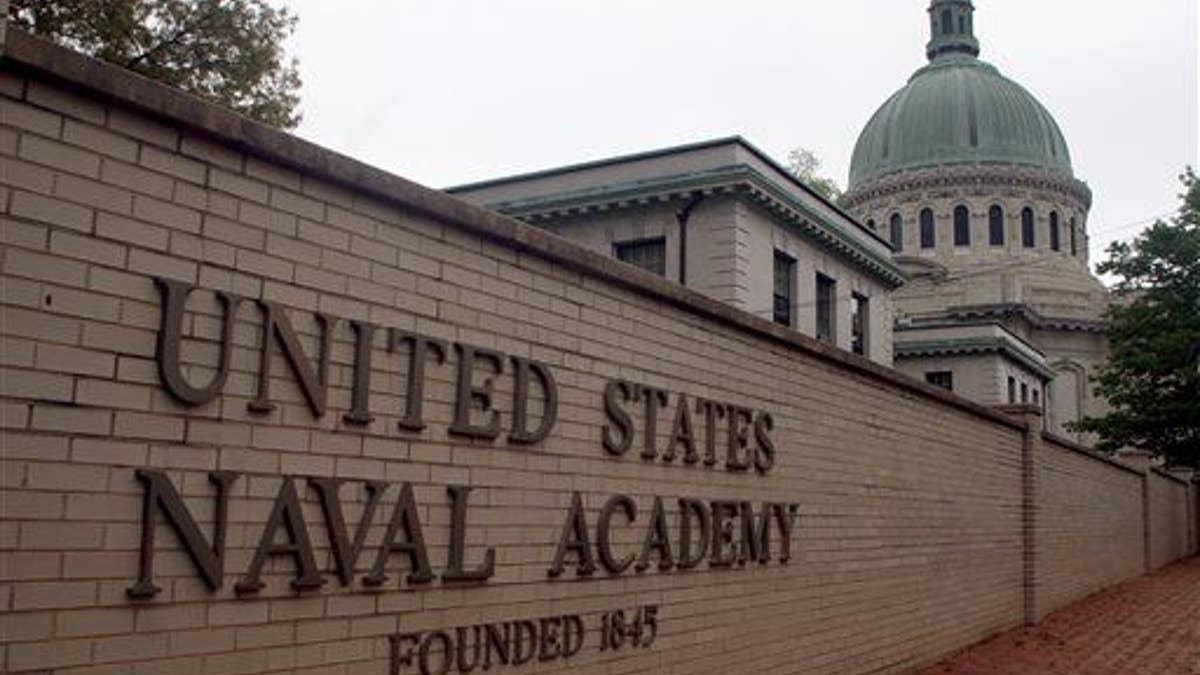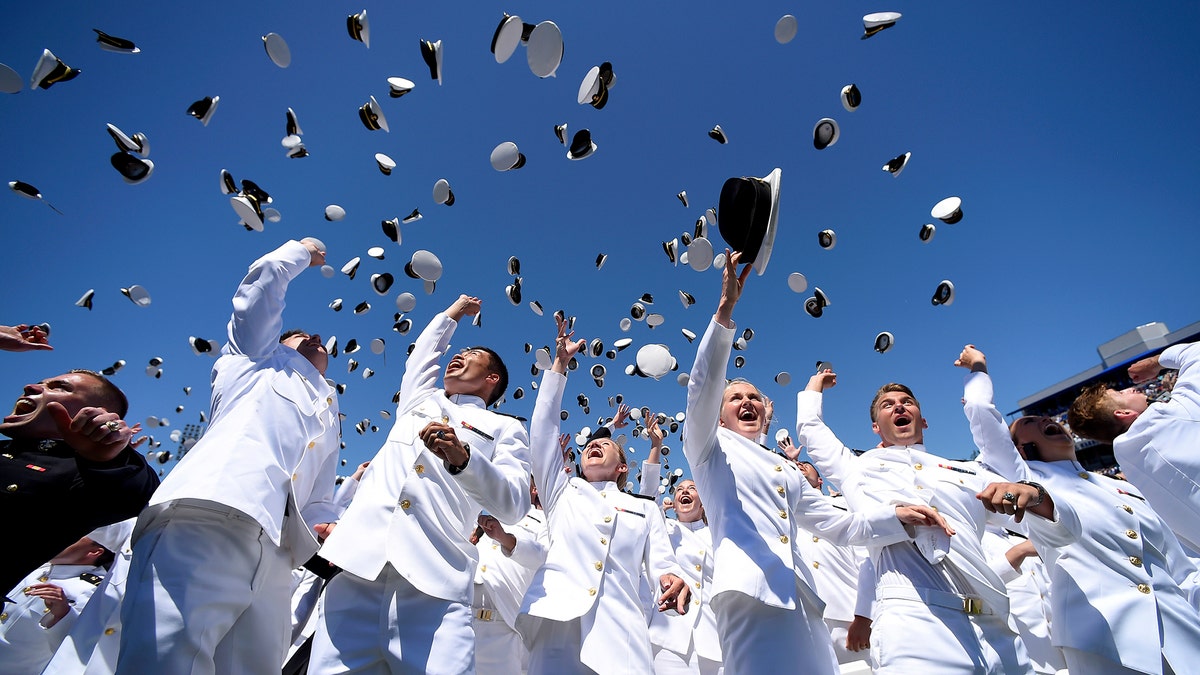
The US Naval Academy in Annapolis, Md. (AP Photo/Kathleen Lange, File)
The U.S. Navy is reenvisioning its approach to education amid concerns that the United States has lost its edge economically and technologically.
The new plan, unveiled Monday, is titled the "Education for Seapower Strategy 2020" and marks the first consolidated strategy for the Navy and Marine Corps. It is the brainchild of the Navy's first chief learning officer, Harvard professor John Kroger, The Associated Press reported.
VETERANS REACT TO FORTHCOMING AFGHANISTAN-TALIBAN' PEACE AGREEMENT'
"Though the need to ensure an advantage in fighting wars is driving the reforms, the educational opportunities will change how and whom the Navy recruits," he explained to the AP. "It's more challenging to recruit when there's relatively low employment."

Graduating members of the U.S. Naval Academy celebrate at the end of the academy's graduation and commissioning ceremony, Friday, May 24, 2019, in Annapolis, Md. (AP Photo/Will Newton)
In a nutshell, the Navy is working to create a naval community college designed to give associate degrees, free of charge, with the majority of coursework taking place online and at schools within the existing naval university system. Those schools also will be unified in a similar vein to a state university system, the AP highlighted.
From Kroger's lens, it is "very much a response to the nation's geopolitical position in the world today, versus the advantages it had at the end of the Cold War," pointing out the rise of China and focus on 5G development.
FALLEN JEWISH AMERICAN WORLD WAR LL SOLDIERS, POWS FINALLY TO BE BURIED UNDER STAR OF DAVID
More than $100 million were transferred from other Navy programs to cover the direct educational costs, with top brass expected to ask Congress for more funding in the 2022 fiscal year.
The overall goal is to urge service members to take on educational opportunities, with incentives such as promotions, in the quest to grow the "brainpower" of the U.S. military.
"There's a close connection between a person's curiosity and aptitude for learning and their capacity to lead," states the strategy.








































